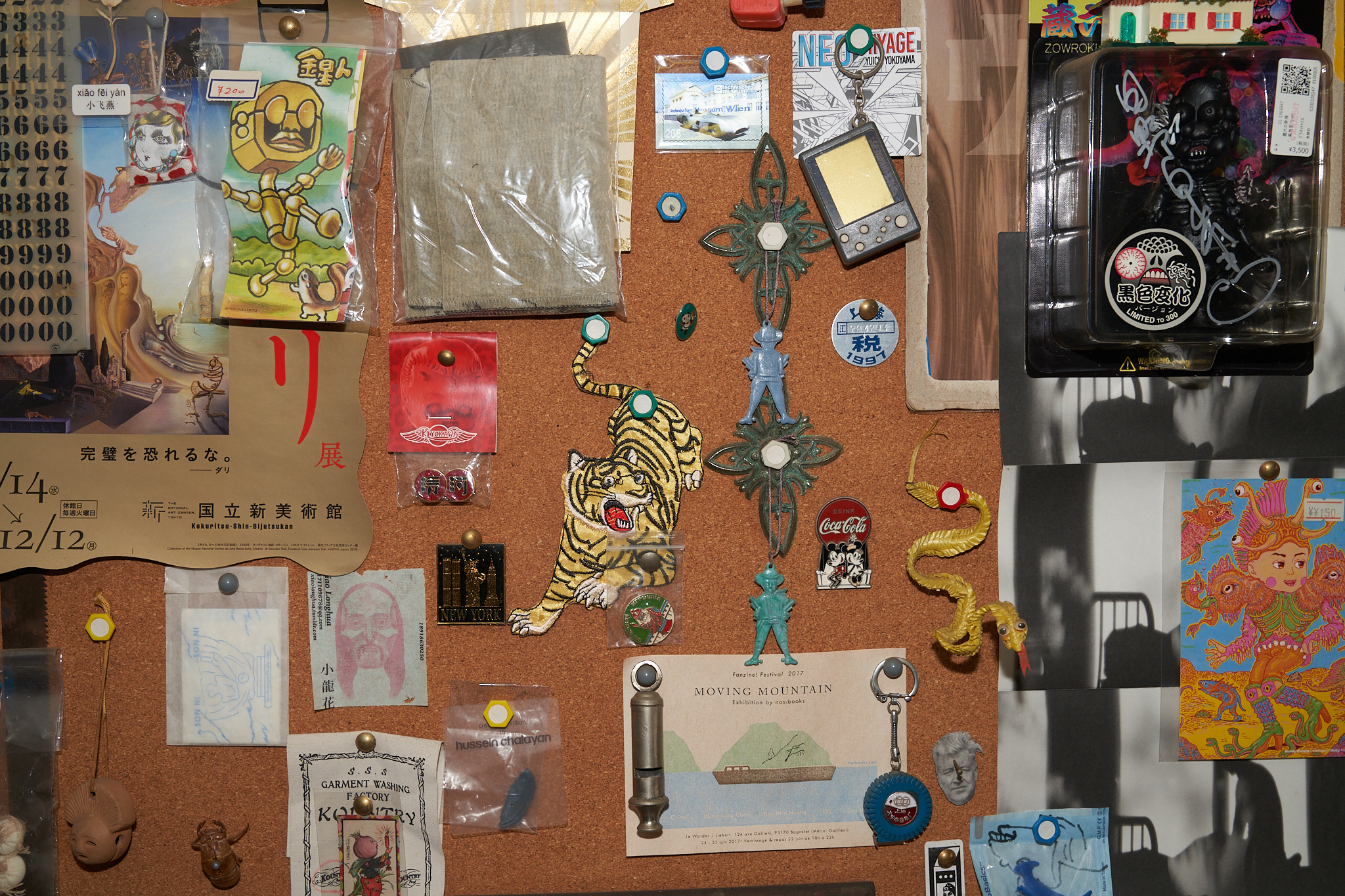NEDKO SOLAKOV: I MISS SOCIALISM, MAYBE
| February 28, 2011 | Post In LEAP 7

Starting with its title, Bulgarian artist Nedko Solakov’s recent outing at Continua bespoke a dubious ambivalence toward a bygone system. Spread across the entire two-floor space, Solakov’s noncommittal stance is effectively revealed in the wide range of media presented— video, painting, graffiti, and writing—through which the artist filters his convoluted if honest ideas about art and life. The works largely portray situations and states of mind that show a personal confusion about reality after mass ideological disillusionment. With contagious wit, he walks a fine line between this disillusionment and a quixotic temerity of lapsed idealism. For Solakov, Bulgaria is merely a paradigm; the art captures a borderless zeitgeist mushrooming in the souls of contemporary human beings—one of longing, sarcasm, innocence, and disillusionment.
A pair of squinting white eyes painted on a large red wall welcome the audience into the exhibition space; the Big Brother allusion does not go unregistered. Colorful, kindergartenlike seating covers the floor, sofas shaped like characters forming the Chinese title of the exhibition. In front of each comfy charactercushion is a small TV and set of headphones. Given the usual lack of seating in galleries, perhaps this becomes an ironic reminder that while socialism subjected people to kindergartenlike paternalism, there were always enough seats for everyone. The space carries a feeling of color-coordinated austerity and psychological simplicity, which are both ridiculed and longed for by the artist. There is a comforting sensation of defined rules, roles, and a fair allotment of rewards and punishments in this playground world under omnipresent surveillance.
In contrast to the overall atmosphere, the videos, ranging from seven to sixty minutes, are overtly subjective. They largely feature Solakov himself as an obsessive self-documenter incessantly searching for truth by subverting context. One video shows a national flag flying heroically over a state building, which now seems pathetically devoid of ideology. Another video documents a decrepit city square—concrete, graffiti, abandonment, and a barking dog— against old footage of its socialist splendor. The inquiring, critical stance of the artist is always felt in his purposefully amateur camerawork. His is a Bulgaria stripped of all illusions, naked, cold, and shivering in the face of reality—a gray Bulgaria, set in direct contrast to the exhibition’s bright colors.
Solakov likes to scribble on the walls, leaving libidinous messages and disguising Lilliputian figurines on ornate wallpaper. He often writes on his mixed-media artwork, adorning it with whimsical tales of generic, shapeless protagonists who persevere through storms of philosophical abstractions—dreams, tunnels, lethargic third eyes. The grandiose themes in the paintings lack pretense. Yet the highly subjective nature of their meaning, as well as the nefarious writing on wallpaper, relies on the presence of the draconian gaze of the overseer for its value.
Within the playground space of mocking socialism, Solakov is a quixotic hero. Middle-aged, ideologically displaced and bald, he takes the audience along on a whimsical battle for truth. As a component of modern society, he can never again be that idealistic, rosy cheeked pioneer. He can’t even be a radical insurgent of the socialist party. Perhaps he never wanted to be either, but in the grey post-illusion plenitude of contemporary life, the grass is sadly as green as it gets.
Nedko Solakov is unsure of whether or not he misses socialism. His nostalgia comes from the disillusionment with adulthood, reality, idealism and, of course, the loss of innocence. These feelings are not exclusive to those who grew up under socialism; capitalist antihero Holden Caulfield had them too. Instead, they belong to all those who once believed and now, when life suddenly is so much more complex, struggle to find something to grip onto amidst the dull certainty of relativism. In the dreamless apathy of post-socialism, middle age, and subjectivity, there are few battles as concrete as windmills, and few weapons as defined as wooden swords. Darja Filippova

